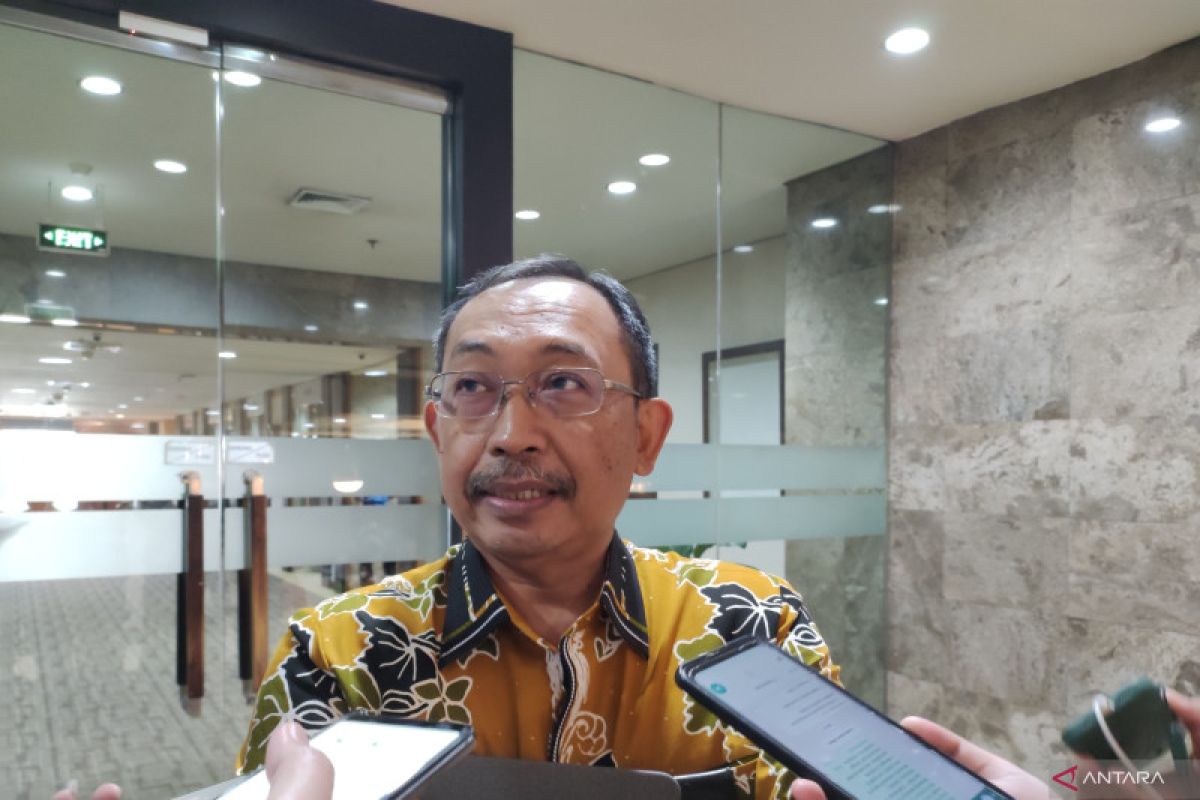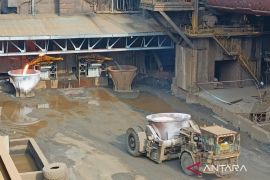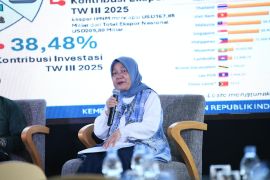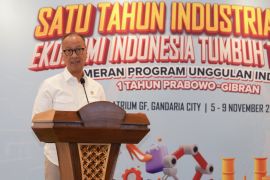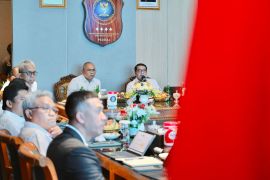Due to the HGBT policy, for these past two years, we can maintain our food security from fertilizersJakarta (ANTARA) - The Ministry of Industry continues to fight for cheap gas prices for the industry following plans to revise certain natural gas prices (HGBT).
"I must also discuss this matter with the Cabinet Secretariat to fight for this HGBT," the ministry's Acting Director General of the Chemical, Pharmaceutical, and Textile Industries (IKFT), Ignatius Warsito, noted on the sidelines of the Focus Group Discussion (FGD) on Optimizing National Engineering, Procurement, and Construction Services In Supporting Industrial Development in Jakarta, Tuesday.
According to Warsito, the policy of cheap gas prices for the industry has brought a positive impact on national food security since one of the industries receiving special gas prices is the fertilizer industry.
"Due to the HGBT policy, for these past two years, we can maintain our food security from fertilizers," he pointed out.
He noted that until now, the policy regarding HGBT was still the same, namely US$6 per million British thermal unit (MMBTU). However, currently, the industrial gas price policy is being evaluated with the Cabinet Secretariat.
Warsito said that industry players can actually tolerate price increases, but the main concern for the industry is the supply.
"From the industry side, we want to ensure the allocation of supply. As for the price, we can have tolerance in the context of moderate gas prices of around US$20. We are still trying to adjust the price. If the price and the allocation are certain, the industry will definitely grow because it has been calculated with the investment," he revealed.
Warsito also said that the evaluation was conducted to ensure fair use of natural gas for both the industry and upstream oil and gas sector.
Earlier, the Ministry of Energy and Mineral Resources (ESDM) was evaluating the implementation of certain natural gas price policies in accordance with Minister of Energy and Mineral Resources Decree Number 134 of 2021 concerning the Use and Prices of Certain Natural Gas in the Industrial Sector.
Evaluation of cheap gas prices is conducted to ensure that the price is in line with the benefits provided by the receiving industry to the state, including increased employment, factory utilization, and tax contributions.
The ESDM Ministry assesses that the incentive for cheap gas prices only helps industries that need assistance, so the policy is temporary.
If an industry has improved as a result of a certain natural gas price policy, then it needs to be evaluated and replaced with other industrial sectors that are still weak.
Implementation of this low gas price policy has reduced state revenues. The ministry noted that the implementation of a certain natural gas price of US$6 per MMBTU had an impact on reducing state revenue by Rp29.39 trillion in the last two years or during the 2021-2022 period.
In detail, in 2021, state revenue had decreased by Rp16.46 trillion and Rp12.93 trillion in 2022.
Apart from the decline in state revenues, a decrease by three percent also occurred in tax revenues from industries receiving gas price incentives in 2021 as compared to that in 2019.
Cheap natural gas prices refer to Presidential Regulation (Perpres) Number 121 of 2020 concerning Amendments to Presidential Regulation Number 40 of 2016 on the Determination of Natural Gas Prices.
According to the regulation, cheap gas prices are aimed at seven industrial sectors: fertilizer, petrochemical, oleochemical, steel, ceramics, glass, and rubber gloves.
Related news: Gas price adjustment for industry to boost tax receipts: ministry
Related news: Government should rectify subsidised Solar diesel fuel price: Expert
Related news: MyPertamina app can help tackle fuel fraud: Official
Translator: Ade Irma J, Resinta S
Editor: Sri Haryati
Copyright © ANTARA 2023
